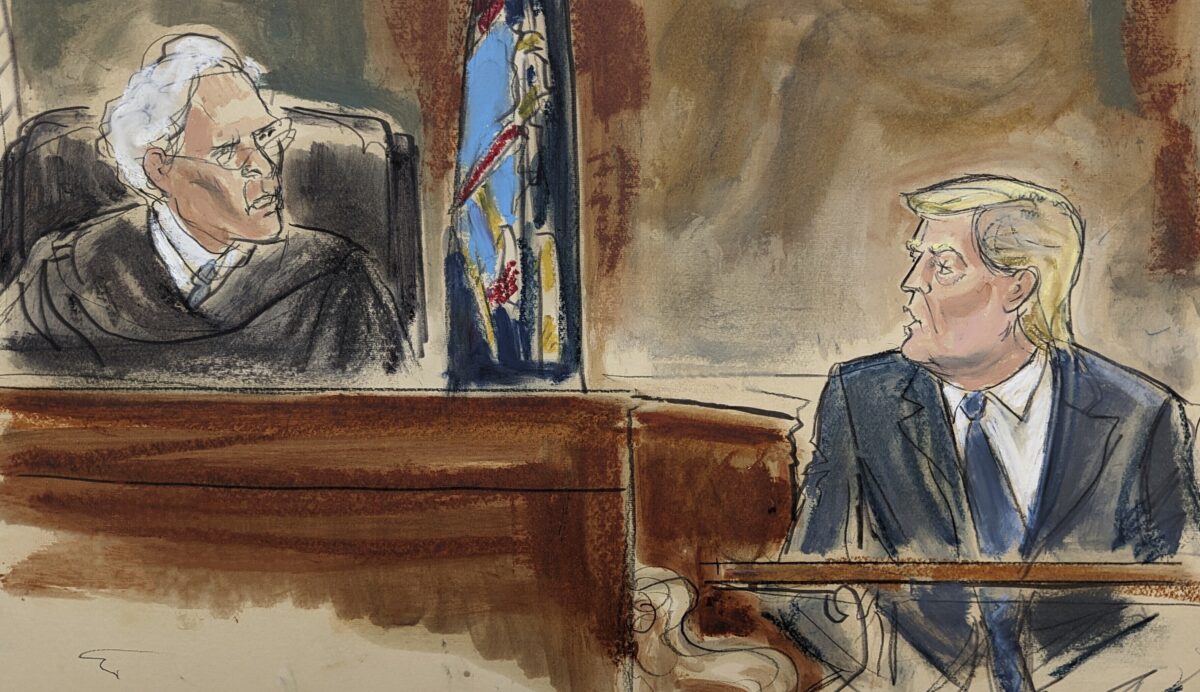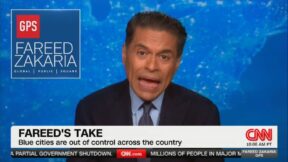‘Borders on Pathological’: Key Section of Judge Engoron’s Ruling Blasts Trumps for ‘Refusal to Admit Error’

Elizabeth Williams via AP, File
A key section of Judge Arthur Engoron’s ruling ordering former President Donald Trump to pay a nearly $355 million penalty and barring him from running his company for three years focused on his “refusal to admit error,” which the judge described as so egregious that it “borders on pathological.”
The case started with a civil lawsuit filed by New York Attorney General Letitia James (D), who sought to force the Trump Org to disgorge $370 million in profits for falsifying the values of their assets, bar Trump and his adult sons Donald Trump Jr. and Eric Trump from doing business in New York, and revoke the company’s certificate to do business in the state.
Engoron already dealt a sharp blow to Trump last September, ruling in favor of James’ motion for summary judgment and finding the ex-president liable for the core claim in the’ lawsuit that Trump had committed fraud by massively inflating the value of his assets by billions of dollars and exaggerating his net worth in order to secure financing and close deals. That order also appointed an independent monitor to oversee the company’s assets.
The ruling ordered the ex-president to pay nearly $355 million, Donald Jr. and Eric to each pay $4 million, and ex-Trump Org chief financial officer Allen Weisselberg to pay $1 million. The order also barred Trump from serving as a corporate officer or a director of a company in New York for three years, and barred his sons for two years. The Trumps did avoid the so-called “corporate death penalty;” Engoron declined to revoke the Trump Org’s certificate to do business in New York.
As former Law&Crime managing editor Adam Klasfeld reported for Just Security, the Trumps had argued that there were no victims, because the banks who issued loans to the Trump Org had been repaid. However, the judge saw it differently, mentioning during pre-trial proceedings that “the victim in the case was the integrity of the New York markets,” wrote Klasfeld.
Engoron was explicitly critical of the Trumps in a section titled “Refusal to Admit Error,” on page 87 of the 92-page ruling, excerpted below:
Refusal to Admit Error
The English poet Alexander Pope (1688-1744) first declared, “To err is human, to forgive is divine.” Defendants apparently are of a different mind. After some four years of investigation and litigation, the only error (“inadvertent,” of course) that they acknowledge is the tripling of the size of the Trump Tower Penthouse, which cannot be gainsaid. Their complete lack of contrition and remorse borders on pathological. They are accused only of inflating asset values to make more money. The documents prove this over and over again. This is a venial sin, not a mortal sin. Defendants did not commit murder or arson. They did not rob a bank at gunpoint. Donald Trump is not Bernard Madoff. Yet, defendants are incapable of admitting the error of their ways. Instead, they adopt a “See no evil, hear no evil, speak no evil” posture that the evidence belies.
This Court is not constituted to judge morality; it is constituted to find facts and apply the law. In this particular case, in applying the law to the facts, the Court intends to protect the integrity of the financial marketplace and, thus, the public as a whole. Defendants’ refusal to admit error—indeed, to continue it, according to the Independent Monitor—constrains this Court to conclude that they will engage in it going forward unless judicially restrained.
Indeed, Donald Trump testified that, even today, he does not believe the Trump Organization needed to make any changes based on the facts that came out during this trial.
CNN’s Kaitlan Collins highlighted this section in her reporting on the ruling and read part of it on air Friday afternoon.
Collins said that she thought that section “really just sums up this entire thing, that there was this refusal to acknowledge that the numbers were wrong, that the facts were wrong.”
“Instead,” she continued, “it was a lot of finger-pointing at other people, Trump’s son saying that they didn’t have eyes, they weren’t responsible, on these documents that went to get these loans that they used for these businesses. And basically, it’s the judge and the court here saying why we are seeing this large of a number, why we are seeing these repercussions, is because they say that they didn’t admit the error of their ways and they believed they would continue doing so unless there were these repercussions.”
Trump attorney Alina Habba has already made a statement that they intend to appeal.
Watch above via CNN.
New: The Mediaite One-Sheet "Newsletter of Newsletters"
Your daily summary and analysis of what the many, many media newsletters are saying and reporting. Subscribe now!






Comments
↓ Scroll down for comments ↓